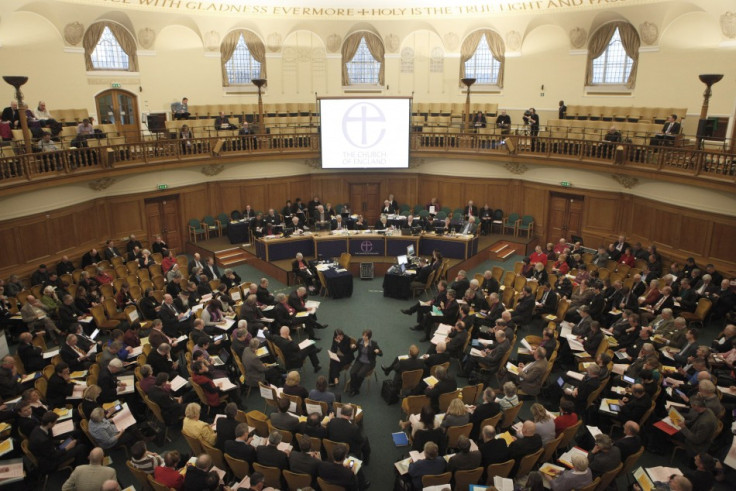Women Bishops Church of England Vote Could be Delayed Again
CofE's General Synod weighs up pros and cons of explosive debate to decide whether to allow women to become bishops

The heads of the Church of England are preparing to vote on whether to allow women to become bishops - but may be delayed yet again.
The decision is to be made by the church's governing General Synod and has divided the church between traditionalists and modernisers.
However, the decision could hit another sticky patch following protests by pro-women campaigners against a last-minute amendment by bishops that threatens to dilute the change.
It was hoped that the decision would be made in the next week as the Synod meets in York University to debate and vote on the matter.
But the amendment, added by bishops in May, would enshrine discrimination against women, claim critics.
Under draft legislation, a female bishop would refer to a code of practice and delegate authority to a male bishop over parishes that choose to remain traditional.
The amendment makes a change to the code of practice, which will indicate that those male bishops chosen to administer over "objector" parishes should share their views.
Campaigners believe that this will create a deepening separation in the Church between those changing with the times and those who choose to distance themselves from female bishops.
Rev Rachel Weir, of Women and the Church (Watch), told the Press Association that the group was calling for an adjournment for the amendment to be removed.
"Over 4,000 people have already signed Watch's new petition asking for the House of Bishops to withdraw the amendment. It is clear that the legislation has lost the support of those who most want women as bishops and has not gained the support of those opposed."
Labour MP Ben Bradshaw criticised the opposing bishops for putting themselves "so far away from mainstream opinion".
He told the House of Commons: "It's terribly sad that yet again the bishops have threatened this measure by trying to water it down.
"They accused this house a couple of weeks ago of jeopardising the status of the established church because we are likely to vote for equal marriage."
He said that the establishment was "a two-way street", with the bishops' actions being so far from public opinion as to threaten the status of the church.
Conservative MP Tony Baldry represented the Church Commissioners and said: "I had hoped that the Synod would give final approval to the legislation for women bishops next Monday, but as a result of an amendment made by the House of Bishops in May it is possible that the Synod will ask the House of Bishops to think again, in which case we may be in for a short period of ping-pong between the Synod and the House of Bishops."
If the vote passes, women will be able to be legally consecrated to the office of bishop. This will included the posts of Archbishop of Canterbury and of York.
For it to pass it must receive a two-third majority in the houses of the bishops, clergy and laity, which make up the Synod. If this happens it must then be passed by the Houses of Parliament and gain Royal Assent.
© Copyright IBTimes 2025. All rights reserved.





















